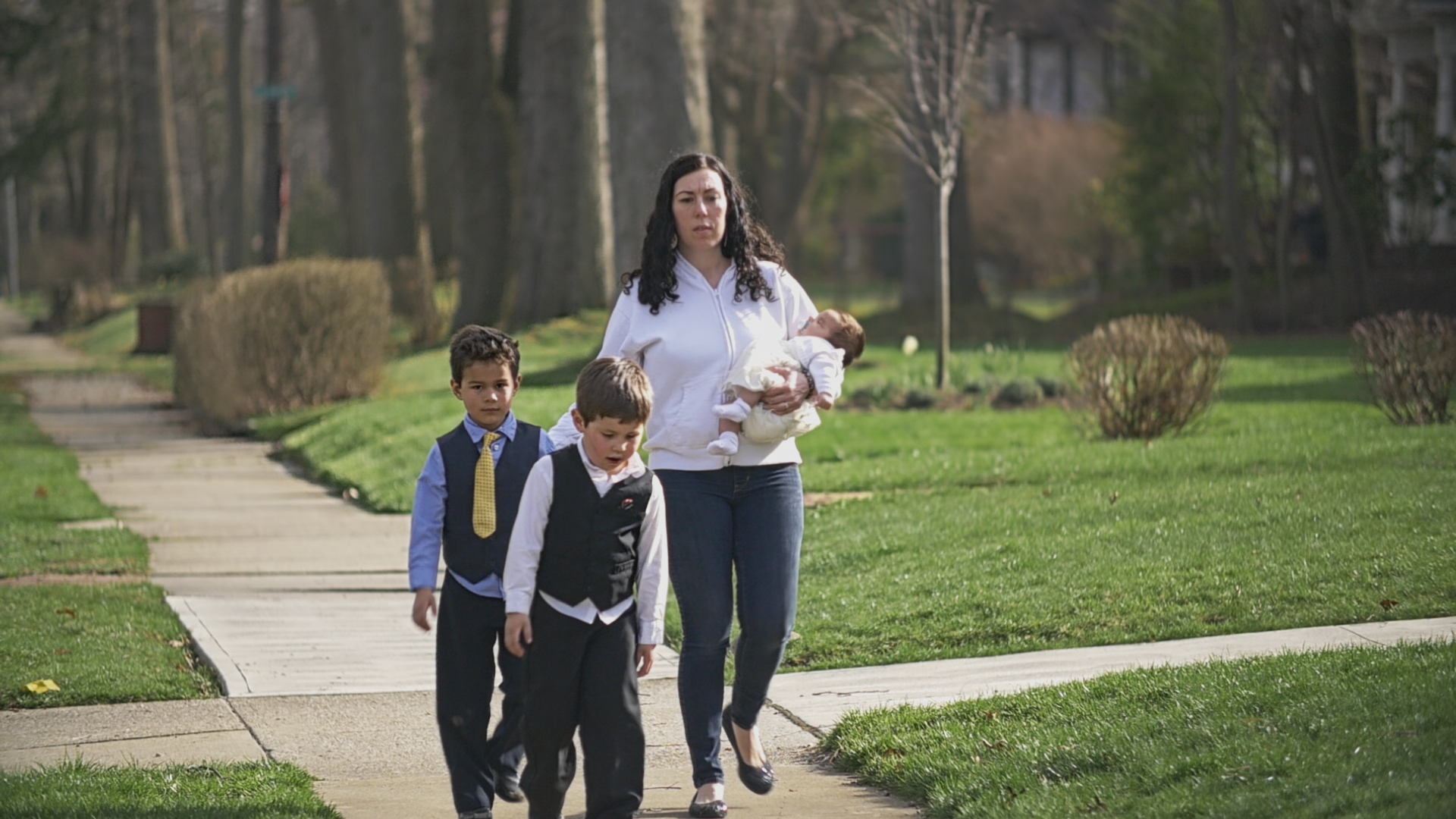What’s Happened to Marcos and Elizabeth

Elizabeth Perez with her sons, Rocky and Pelé, and daughter, Georgia.
From the outside, Elizabeth Perez’s life looked idyllic. After years of fighting to reunite her family, she and her four children were able to join Marcos Perez, her husband, in his native Mexico. The family lived in a condo on the sun-drenched Yucatan Peninsula, a popular tourist region peppered with ocean-front resorts.
And yet, Elizabeth Perez struggled. Separated from her family and friends in Cleveland, and unable to speak more than rudimentary Spanish, she felt isolated. The Marine veteran couldn’t access the health care she was afforded through Veterans Affairs outside of United States. Meanwhile, her husband, who had been a soccer referee and English teacher in Mexico City, couldn’t find work.
So in 2017, just a year after moving to the Yucatan, Elizabeth Perez and her kids left Mexico — and her husband — behind. The four children, ranging from one to nine, would have to go back to talking to their father primarily through a computer screen.
“When we came back from Mexico…one of my sons was in a really dark place,” she said. “He felt like he abandoned his dad.”
Marcos Doesn’t Live Here Anymore, a new documentary from FRONTLINE, Independent Lens and VOCES directed by David Sutherland, tells the story of the Perez family, which has been divided by the U.S.-Mexico border since Marcos Perez was deported in 2010. The film chronicles Elizabeth Perez’s repeated attempts to bring her husband back to the U.S., and his battle to make a home in a place that he left many years before — one far away from his wife and children.
In 2010, Marcos Perez was picked up by police during a traffic stop on his way to his job at a janitorial company. Two weeks later, he was back in Mexico. The day he was arrested, a doctor had confirmed Elizabeth was pregnant with their second child. Pelé, their first son, was about six months old.
Perez suddenly found herself struggling to raise two children without a partner and navigate a complicated immigration system she knew little about. Even as she paid out legal fees and filled out visa applications, Perez did her best to shield her children from what had happened to their father.
“I feel like my children have this huge burden, and I try to separate them from it,” she said. “I never even said the word ‘deported’ — they didn’t even know their dad was deported until they were like six.”
And all the while, the family was still growing: Twice during extended trips to Mexico, Perez became pregnant. Three of the couple’s four children were born when her husband was in Mexico.
“My family helped out a lot, but it’s not same as getting support from a spouse,” she said. “My children also need their father.”
Marcos Perez’s specific situation, like many going through the immigration process, isn’t clear cut. The couple didn’t get married until after he was back in Mexico. He had a criminal record in the U.S., and he had already been deported once. The Perezs have applied seven times for humanitarian parole, which allows certain inadmissible immigrants into the country if there is a compelling emergency — in this case, Elizabeth Perez raising her four children as a single parent while dealing with an array of medical and psychological issues — but have been denied each time.
So now, the family is left with one final option: waiting for Perez’s ten-year immigration bar — which was put in place after he was deported for the second time — to end, and then apply for a waiver so that he can enter the country legally.
Over the years, Elizabeth Perez has seen how her husband’s deportation has affected her children. Her explanation that their father is “at work” in Mexico no longer works. They have had to face the realities of the U.S. immigration system at a young age.
By the time Rocky, her youngest son, was four, he had his dad’s phone number memorized. The children talk with their father daily and connect in other ways, such as their shared passion for soccer. Georgia, the oldest daughter, is constantly showing off little gifts that he’s given her. Still, nothing compares to physically being with their dad.
Elizabeth says the separation has given her children what she calls an “identity crisis” — they try to favor the Mexican side of their heritage more than the American side, because it makes them feel closer to their dad.
“I fought for my country. I love my country, and I don’t want them to say they don’t like being American,” she said.






